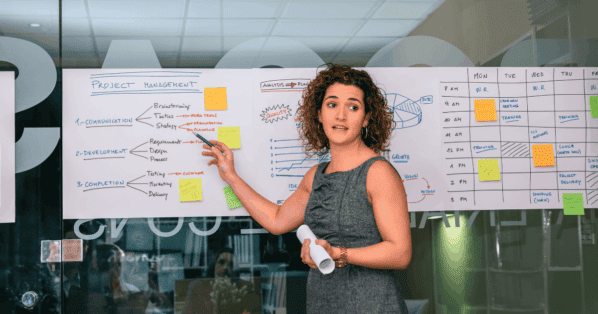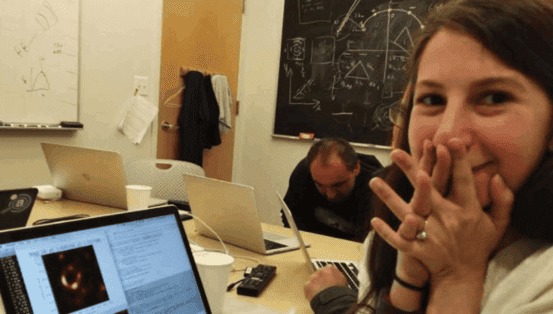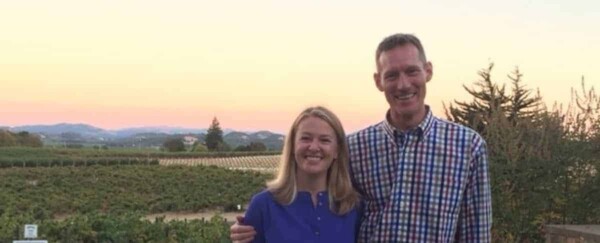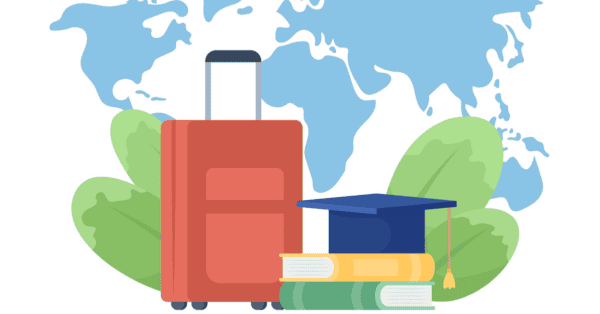The 18th annual Science and Technology in Society (STS) forum was held live online in early October from a base studio in Kyoto, Japan. Approximately 1,400 global leaders in science and technology, policymaking, business, and media from 125 countries, regions, and international organizations explored opportunities that science and technology present to tackle global issues – specifically, health crises like COVID-19 and climate change.
Thanks to an invitation from the Henry Luce Foundation, Roberta Rincon, Ph.D., Associate Director of Research, attended as SWE’s representative. Here are a few highlights from some of the forum sessions.
Hiroshi Komiyama, Chairman of the STS forum, offered opening remarks. He compared knowledge to the spines on a puffer fish, noting that “knowledge is scattered,” and we must find a way to integrate it, break the silos that exist between academia, industry, and the science community.
Breaking Silos in Education
This session’s panelists included professors from universities in the United States, Japan, and Israel, as well as high-level education administrators from Australia, Japan, and the United Kingdom. In keeping with the opening remarks, the presentation focused on how we must break down silos in education across organizations, subjects, and regions. We need to tackle global challenges using a multidisciplinary approach. Joachim Frank, Professor of biochemistry at Columbia University, spoke of the importance of a liberal arts education, noting that some countries are putting too much emphasis in tracking students early in their education. He spoke about how fiction and science are compatible, leading to broader thinking, and he shared his website: FranxFiction.com. Margaret Sheil, Vice-Chancellor and President of Queensland University of Technology, focused on the impact of the pandemic on learning, stating that kids need social interaction, and online learning is much harder to do in K-12 than in college.
Basic Science, Innovation and Policy
This session focused on the shift of the global challenges towards a more green and digital world, creating new requirements for stakeholders. The panelists discussed the impact on the terms, roles, and interfaces between science, innovation, and policy – particularly cross-national collaborations.
Jean-Pierre Bourguignon, Honorary Professor at the Institut des Hautes Études Scientifiques in France, asked how different countries with different priorities can really work together to address global challenges? In democracies, for example, politicians are elected, and their time in office is or can be relatively short.
Ara Darzi, Professor of Surgery and Faculty of Medicine at Imperial College London, stated that “necessity is the mother of invention.” Policy coordination within and between countries is needed. COVID showed us examples of how coordination can happen between science, globalization, and policy. It can be done.
Anne Kitson, SVP of The Lancet and Cell Press at Elsevier Ltd. in the United Kingdom, agreed, stating that we have seen extreme speed among scientists during COVID. We can collaborate when there is an incentive to do so. But we also need to incentivize public behavior. With COVID, we required policymakers to influence public behavior and help us successfully combat the pandemic. Another example of where policymakers are a key to success is when carbon taxes are implemented as an incentive to promote change for a cleaner climate.
Tim Hunt, Visiting Researcher at Okinawa Institute of Science and Technology in Japan pressed the need for more politicians who understand science. Thomas Südhof, Professor at Stanford University School of Medicine, noted that a short-term goal is only worthwhile if there are long-term consequences. Politicians and the public need to understand this.
Ara Darzi said that in addition to the great collaborations that occurred during COVID, poor collaborations also took place. One example from a policy perspective is the lack of data sharing. Thomas Südhof expressed concern that we are moving away from international collaborations. China is being cut off, both by choice and by others. Brexit was a sign of the desire towards nationalism. The U.S. is suspicious of international collaboration, with scientists required to get NIH approval before collaborating with international scientists and distrust of those serving on international boards or committees.
Science and Technology to Build a Resilient Society
Panelists discussed the need to build resilience at the community level through a convergence of science, technology, and social sciences, with input from and engagement with civil society. We must ensure that an attractive technical solution to a particular problem does not inadvertently create a challenge for the community we seek to serve.
Helen Clark, the 37th Prime Minister of New Zealand, stated that we need leaders and governments to identify win-win solutions to promote climate change policies. Regardless of the type of government structure or geopolitical divisions that exist, countries need to come together to develop solutions to global problems. Dale Beugin, VP of Research and Analysis at the Canadian Institute for Climate Choices said that it is all about managing uncertainty. We need polices for “safe bets” as well as policies for riskier potential solutions.
Martin Keller, Director of the National Renewable Energy Laboratory in the U.S. asked how we can bring everybody along during the energy change. For example, people who work in or with the coal industry need help to transition to greener energy sources and new employment opportunities. Sarah Springman, Rector at ETH Zurich in Switzerland, said that young people need to be educated to work in teams, to think critically. Our biggest problem right now is getting students back in the classroom, helping them to overcome mental health issues and move from a survival mentality to one in which they can help us to solve the global crisis.
Yuya Kajikawa, Professor in the School of Environment and Society at the Tokyo Institute of Technology stated that we also need a more comprehensive view to support leaders. We need different levels of action at the local, regional, and global levels as well as different levels of leaders. Helen Clark noted that we need solidarity funding to address global crises and to help low-income areas of the world.
Collaboration Among Academia, Industries, and Government
The United Nations’ Sustainability Development Goals are a call to action by those countries in a global partnership to combat global challenges. However, these challenges cannot be dealt with in isolation; they interact with one another, sometimes in a conflicting manner. Similarly, these global issues cannot be addressed by any single nation or institution alone.
Francis Collins, Director of the U.S. Department of Health & Human Services at NIH stated that past collaborations to tackle global problems like the AIDS epidemic and Ebola helped us to feel comfortable partnering with international scientists to tackle COVID quickly. Working together, you work much faster and simpler to make research impactful – beyond just publications, which only really help the researcher.
Paul Stoffels, Executive VP and Chief Scientific Officer at Johnson & Johnson said that regulators moved quickly to approve industry clinical trials for COVID vaccines. It was a good example of government and industry collaboration. Dervilla Mitchell, Deputy Chair at Arup in the United Kingdom, stated that we need to work together more regularly and not just wait for a crisis. This would allow us to know each other and be prepared to work together during crises. Also, collaborations should not be driven by money, but by purpose and outcomes.
Arthur McDonald, Professor Emeritus in Physics at Queen’s University in Canada believes that the collaborations around COVID will lead to more public trust in science – though he quickly noted that this may be too optimistic. Paul Stoffels then spoke about how fake news costs us a lot of money. In COVID, fake news prevents people from vaccinating or believing in the science. He stated that fake news is front and center, and it must be addressed.
Final Note
Thank you to the Henry Luce Foundation for allowing SWE to participate in this global and interdisciplinary forum of exceptional scientists and world leaders in policy, academia, and industry.
Author
-

SWE Blog provides up-to-date information and news about the Society and how our members are making a difference every day. You’ll find stories about SWE members, engineering, technology, and other STEM-related topics.






